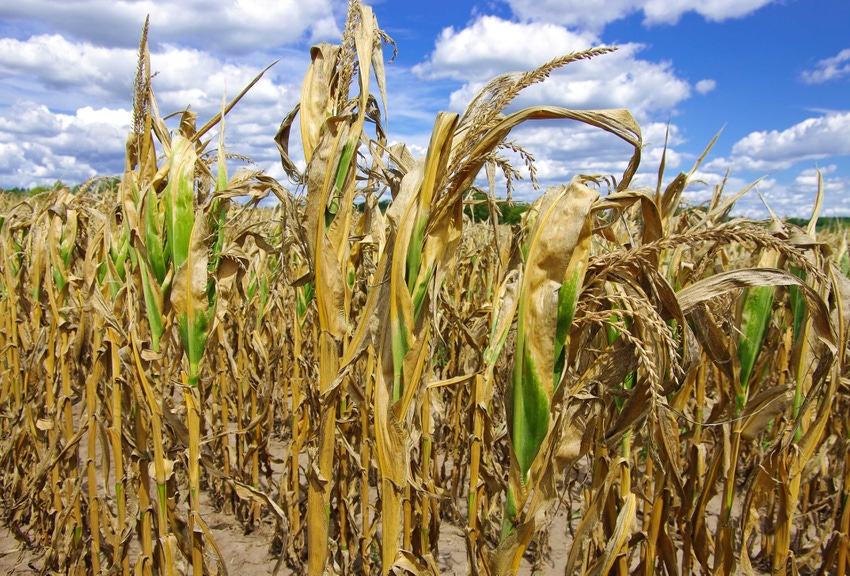Cattle feeders be cautious when using drought-stressed corn
Tolerance to nitrate ranges with the type of beef animal.
September 1, 2023

Iowa is fortunate to have corn as a major cropping enterprise. That's why it's important to keep harvest management tips in mind, according to Beth Doran, beef specialist with Iowa State University Extension and Outreach.
“We grow a lot of corn, which offers producers the opportunity to harvest green-chopped corn as forage or to put it up as silage,” Doran said. "Regardless of what producers choose, there are other factors to consider, especially when harvesting drought-affected crops."
Doran cautions producers to check with both their Farm Service Agency and crop insurance agency before chopping. If drought-stressed corn is green-chopped, producers should be aware of the potential for nitrate toxicity.
“There is a quick test that can be used to test for the presence of nitrates, but a sample of the green-chopped feed should be sent to a commercial testing laboratory to determine the amount of nitrate,” Doran said. “Do this before feeding!”
Ensiling of drought-stressed corn will reduce the nitrate concentration by about 40% to 60%. Still, producers need to have it tested after ensiling and before feeding to determine the actual level of nitrate. If the nitrate level is high, the silage may be diluted with low-nitrate feedstuffs.
Doran reminds producers that tolerance to nitrate ranges with the type of beef animal. Feedlot cattle over 700 pounds tend to be more tolerant, while lighter feedlot animals or pregnant cows and heifers are least tolerant. It is advisable to feed it to the most tolerant animals.
Other best management practices include raising the cutter bar as high as possible, harvesting at the proper dry matter, allowing four to five weeks for fermentation, slowly adapting the animal to the silage and providing a balanced diet.
See more information on drought and beef cattle in this Nitrates in Livestock Feed publication on the Iowa Beef Center website or contact Doran by phone at 712-737-4230 or email [email protected].
You May Also Like


.png?width=300&auto=webp&quality=80&disable=upscale)
